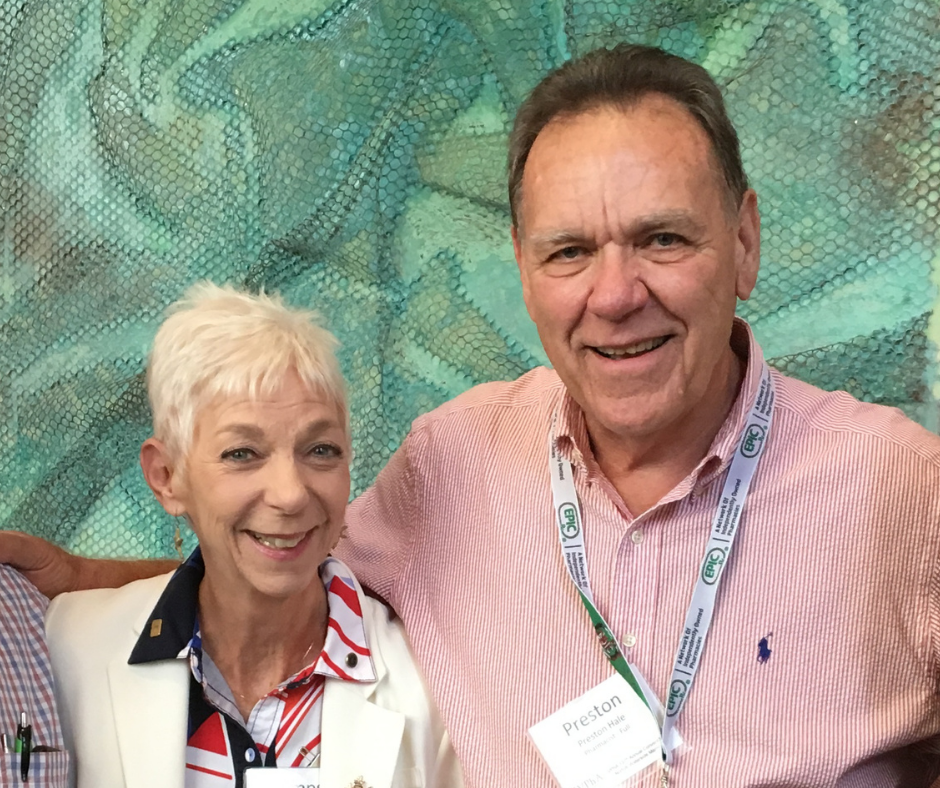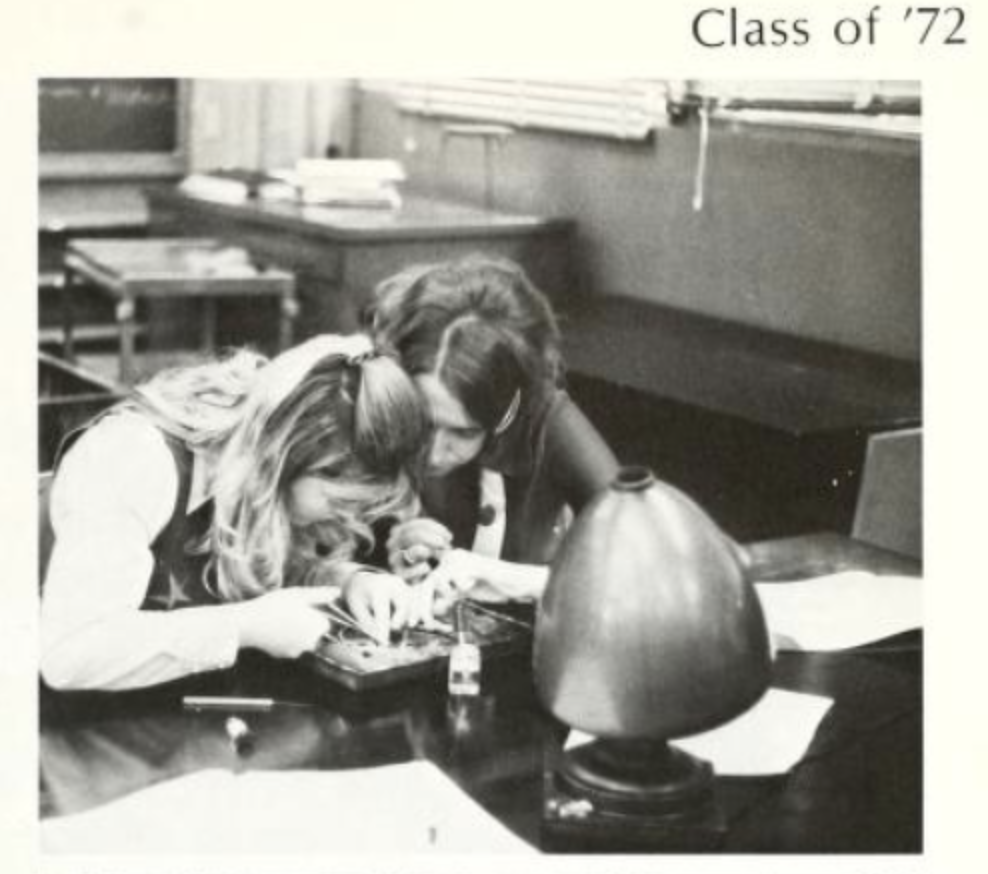From technology to patient care, alums from the Class of 1972 reflect on the last 50 years
Ahead of their 50th SoP reunion, Preston Hale and Empsy Munden share where their careers have taken them and how the profession has changed.

By Leah Small
A few years after graduating from the VCU School of Pharmacy in 1972 — when it was still common to use a manual type writer to label prescriptions — Preston Hale was a partner at one of the first pharmacies in Virginia to automate in 1976. In time Hale, a self-described “efficiency geek,” developed and sold one of the first microcomputer-based pharmacy-management systems.
Hale, from Elkton, Virginia, says VCU “gave me a chance to do something with my life.” VCU empowered him to pursue goals in business, tech and the practice of pharmacy.
Similarly, fellow Class of 1972 graduate Empsy Munden has relied on business sense and pharmacological knowledge throughout her career. In 1977, Munden and a partnering pharmacist opened the first pharmacy in the newly operating Chesapeake General Hospital.
Ahead of the 50th anniversary for their graduating class, Munden and Hale reflected on how the practice of pharmacy has increased in scope over the past half-century.
“VCU gave me the opportunity to get involved in a field that has grown like crazy over the past 50 years,” Hale says. “The responsibility that is now placed in the hands of pharmacists is unbelievable. The knowledge they have, and the ability to support the medical field and to protect and enhance a patient’s life, is unbelievable.”
Munden adds that pharmacist autonomy has grown. “We are capable of much more than counting and pouring,” she says. “We always knew that but sometimes our advice, information and skills were not always readily accepted by physicians at that time.”
Fifty years ago, the practice of pharmacy had just been rocked by the discovery of ibuprofen about a decade prior. The NSAID wouldn’t be sold without a prescription until 1984. Hyperalimentation, the lifesaving ability to deliver nutrition intravenously, had been invented in 1967. Munden recalls learning how to administer hyperalimentation solutions, take narcotic counts and make IVs as a second-year pharmacy student working at MCV hospitals, now the VCU Health Center.
Technology has improved accuracy and speed within the field of pharmacy, Hale observes. He remembers the tedium of manually typing labels and processing payments prior to electronic methods — two reasons his pharmacy management software was innovative and time-saving.
And just as science and technology have advanced, the inclusion of women in higher education and the field of pharmacy has increased dramatically since 1972, Munden reflects. In her graduating class, 19 students, about a third, were female. Today about two-thirds of pharmacy students are.
“We were not the first females, of course, to come,” she said, “but admission was beginning to shift toward there being more and more women.”
During her early childhood in Blackstone, Virginia, Munden remembers how meeting a local woman pharmacist, Carole Hagaman, stoked her career aspirations. Munden, whose mother was as a hairdresser, was sent across the street to the drug store where Hagaman worked to pick up lunches for women stuck in salon chairs until their roller sets and color were complete. There was always a Coke in the deal for the young girl, too.
“Carol Hagaman wore a white coat. She was very professional,” Munden says. “And Mama was just so impressed with this lady pharmacist.”
In the last two decades of her career, Munden found a passion for practicing pharmacy in a long-term-care setting, which enabled her to use her clinical knowledge to make treatment recommendations to physicians working with the elderly.
“That was just where I needed to be,” she says. “I really enjoyed doing that.”
Hale’s tech business was purchased in 1997 by major industry player QS/1, which supported technical solutions for more than 8,000 pharmacies nationwide. Hale eventually moved into sales and marketing for software programs serving independent pharmacies, and for 10 years headed national accounts for QS/1. He strived to ensure that independent pharmacies had the technological tools needed to compete with chain pharmaceutical retailers.
“It was amazing, the people I met and how they practiced pharmacy,” Hale says. “They were successful because they knew what they needed to keep up with in order to compete against major chains. That inspired me to make sure I kept bringing them cutting-edge technology.”
In retirement, both Munden and Hale have continued to serve in civic and trade organizations in the field of pharmacy, including the MCV Foundation and the Virginia Pharmacists Association. Hale is a member of the School of Pharmacy’s National Advisory Council. Recently Munden has helped administer COVID-19 vaccines as a member of the Virginia Medical Reserve Corps.
The two have been working with their classmates to build a $100,000 Class of ‘72 scholarship for pharmacy students, with the goal of reducing the expense of attending pharmacy school.
Both Munden and Hale encourage recent graduates of the VCU School of Pharmacy to use their skills to serve others and to stay up to date on the profession.
“You have chosen a great profession,” Munden tells new and aspiring pharmacists. “You can do amazing things for your patients, neighbors, schools and churches. Be the role model you can be. Stay up to date on medications and diseases, be active in your professional organizations and your community, and be a resource.”
Interested in supporting the Class of ’72 scholarship fund? Visit this scholarship page or contact Louie Correa at lacorrea@vcu.edu or (804) 828-3016.
Categories Alumni news, Pharmacy profession



